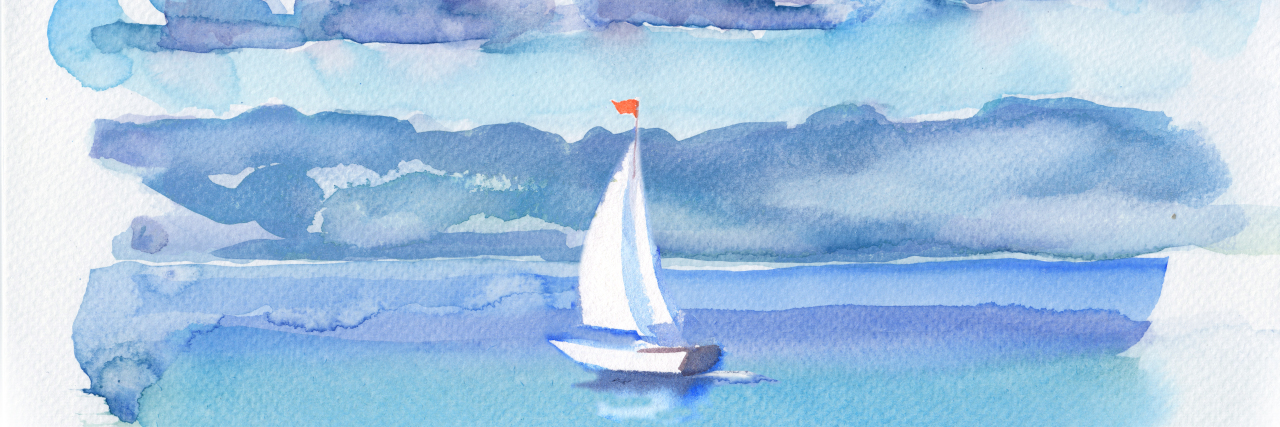If you have met one person with autism, then you’ve met only one person with autism. Every autistic person is different; it affects us all in different ways. We all have our own unique personality just like the rest of the population, so there’s no simple way to sum up what autism is. But I can start by telling you what autism is to me.
Throughout my life, I have experienced bullying for being supposedly “different.” I remember walking off the school bus one day and a girl punched me in the stomach. Another time I came home soaking wet because the other children thought it was funny to throw water on me.
I didn’t understand why the other children treated me like that. I knew I was different but couldn’t understand why they couldn’t accept me. I believe everyone should just be nice to each other, but some people have said I have a deluded view on the world.
When I was younger, adults were a lot nicer to me. They would talk to me on my level and they wouldn’t bully me, so I spent a lot of time talking to them rather than other children my age.
It took a long time for me to be diagnosed with autism, a time that was very difficult and confusing for me. The first school I went to said I couldn’t be autistic because I’m a girl! After moving school several times, I was officially diagnosed with Asperger’s at the age of 9. My formal assessment said things like “Lottie does not notice subtle social cues and experiences difficulties in maintaining friendships,” and “She does not adhere to expected social hierarchies.” Even though the diagnosis did make it easier for people to understand me, the assessment does not define me.
University was a turning point. People began to accept me for who I was and didn’t care about any “differences.” Lecturers believed in me and told me I could do anything I put my mind to, focusing on my strengths. My investment in my interests and passions is where I differ from my peers. Often when I talk about sailing, people think I’m being “over the top” – but if I’m not over the top about something, it simply isn’t a special interest of mine!
Even though awareness of autism is growing, I believe there’s still a long way to go. That’s why after graduating with a degree in yacht design from Solent University, I applied to P&G’s neurodiversity work placement program. It really appealed to me because the assessment day lets autistic candidates demonstrate diverse thinking. They didn’t assess me on verbal communication skills, which was super important because I’m more prone to nonverbal communication – it’s more comfortable for me.
I have worked with the engineering team at the P&G Blades and Razor FEI department in Reading for some time now, alongside others who also think “differently.” Here I am able to grow and work to my full potential in a space where I feel relaxed. The Innovation Center specifically caters to my needs with spaces that soothe sensory stimulation, such as neurodiversity pods, which block out a busy and noisy environment that otherwise can be overwhelming and hard to filter out. I always try to avoid bright lights and loud noises, but I like sensory stimulation through deep pressure and touch.
My autism assessment said, “Lottie enjoys playing according to a recipe,” and that remains true. A lot of autistic people struggle with social imagination and being able to think up scenarios for play, but they are great problem solvers as that uses a different type of imagination. I am different and that is OK. Our different thinking means autistic people can find novel solutions to problems others might not be able to come up with. We don’t think outside the box — we show you there is no box! This is the reason I became an engineer.
I have always loved helping people and this led to my recent set-up of Ausome, a charity I run with a couple of friends to help other autistic people. I realized sailing had helped me so much throughout school and had given me something to look forward to, while also teaching me life and social skills that have boosted my confidence and self-esteem. Without sailing, I may not have gotten my degree in yacht design and I may not have gotten my position in P&G’s work placement program. Simply put, I wouldn’t be where I am today.
I think it’s sad and unfair that only 16 percent of autistic adults have full-time employment. I hope to break down the barriers of mental health, confidence and self-esteem so many autistic people face to help them seek out opportunities and look for employers who are willing to support you, just as I’ve been supported.
Autistic people might be different, but we are not less. It’s like you’re running on Windows and we’re running on iOS. We do things in a different way but that’s OK, because we still come to a innovative result.
Getty image by Rosmaro.

